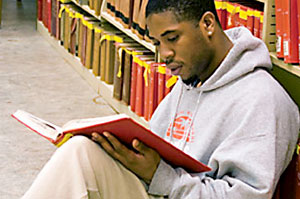 There are 18,510 academics in the UK. Only 85 of them are black. That is how underrepresented the Black race is in UK academia. While in the US, each field of discipline has hundreds of dedicated journals for black studies; in the UK, there is only Black Theology. Black British Academics founder and University of Salford lecturer in journalism and media Deborah Gabriel says that addressing the racial inequality in the academe means that more studies on black culture, history and contributions should be conducted and introduced into the curriculum.
There are 18,510 academics in the UK. Only 85 of them are black. That is how underrepresented the Black race is in UK academia. While in the US, each field of discipline has hundreds of dedicated journals for black studies; in the UK, there is only Black Theology. Black British Academics founder and University of Salford lecturer in journalism and media Deborah Gabriel says that addressing the racial inequality in the academe means that more studies on black culture, history and contributions should be conducted and introduced into the curriculum.
The issue of equality among races, specifically for blacks, is not a simple case of underrepresentation. It is more about the working conditions, salary negotiations and promotion frameworks which are vague. Given the small number and percentage of black professors, universities are still using strategies for increasing black staff representation which are weak. Most of the programmes are based on the presumption that black staff do not have enough confidence, knowledge, skills and experience necessary for advancement. Black academics say that they should be given the chance to use and show their intellectuality by providing them with more research opportunities and this can be done by expanding the curriculum to include studies specialising on the contribution and aspect of blacks in each discipline.
81% of Black academics connected with the BBA want initiatives that will help people from minority ethnicities to be given fair chances of advancing to become academics. They have the numbers to back their clamour for equality as gender equality have been successfully achieved with a 44% ratio and the total of black academics which already includes those with Caribbean, African and other mixes is only 12.5%.
The greatest factor that has hindered blacks from becoming academics in universities and develop further is cultural bias. Simple recognition, encouragement and support makes the difference between making it to become an academic and not; and many black academics do not get these. Being fair to blacks does not mean senior academics will simply increase the number of blacks they recruit as new academics. What needs to be done is to give the aspiring blacks chance for their knowledge to be validated, says BBA member and independent research Cecily Jones. This means that for black academics to increase in number, studies which are relevant and pertinent to the lives, histories and communities of blacks should be offered as valid and credible degrees.
Black studies are hard to develop in the UK higher education sector because while there are existing course, there is a problem in framing arguments. At present, there are no accredited black studies programmes in the UK. A PhD student at the University of Oxford, Adam Elliott-Cooper says that black studies should not be limited to issues about racism. The contribution of ancient African histories to world civilisations including African cultures, literature and arts should be reached by studies.
What do you think will be the implications or effects of expanding black studies in higher education?
 English
English 中文
中文
